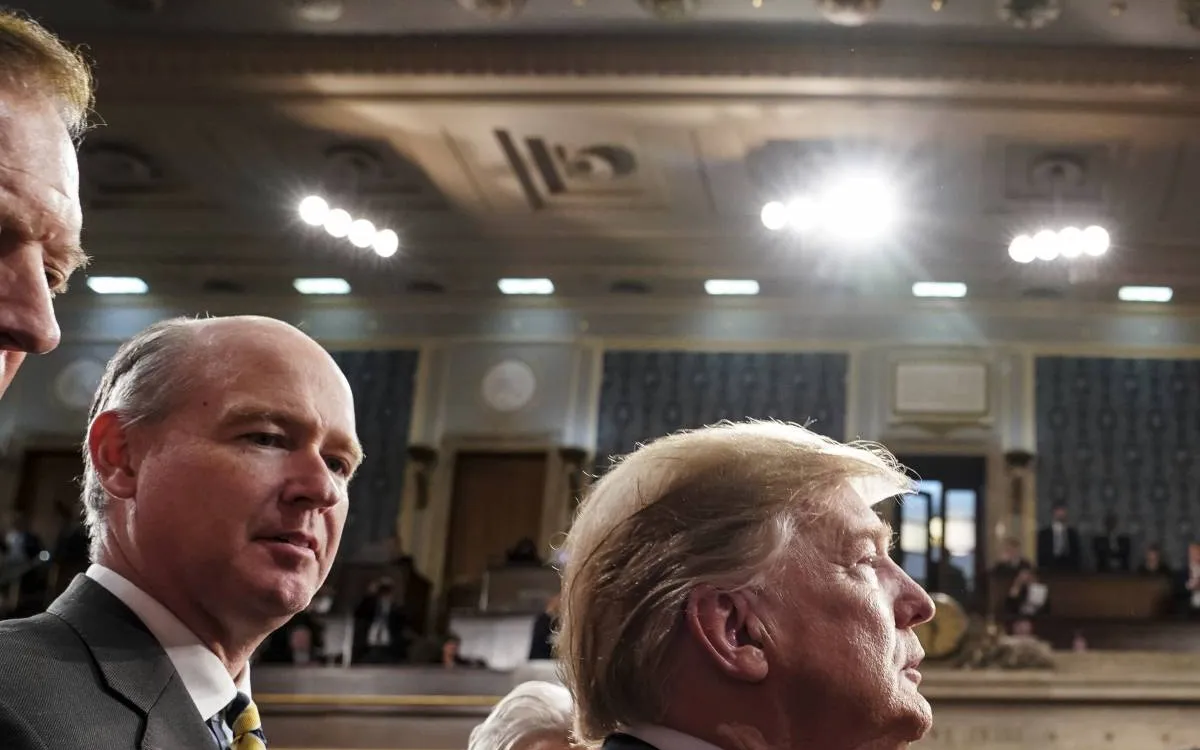
In a surprising move, President Donald Trump has dismissed former U.S. Representative Billy Long from his position as IRS Commissioner, merely two months following his Senate confirmation. A White House official confirmed the news on Friday, although the reasons behind Long's abrupt removal remain unclear. This decision marks a significant moment in the history of the IRS, as Long's tenure stands as the shortest for any confirmed commissioner since the role was established in 1862.
Following his removal, Long took to social media to announce that he has been nominated by Trump for an ambassadorship position. In his post, he expressed his gratitude, stating, "It is an honor to serve my friend President Trump, and I am excited to take on my new role as the ambassador to Iceland. I am thrilled to answer his call to service and deeply committed to advancing his bold agenda. Exciting times ahead!” This transition indicates that Long will continue to be involved in public service, albeit in a different capacity.
In the wake of Long's dismissal, Treasury Secretary Scott Bessent will step in as the acting IRS Commissioner. The White House official, who spoke on the condition of anonymity, confirmed this arrangement. Long's exit adds to the growing instability within the IRS, which has experienced significant turnover since the onset of Trump's second term.
Long's short-lived leadership follows a turbulent period for the IRS, which saw four acting leaders before his confirmation in June. Additionally, the agency has faced substantial staffing challenges, losing approximately a quarter of its workforce since the Department of Government Efficiency initiated efforts to minimize waste, fraud, and abuse. A message that Long sent to IRS employees after his confirmation highlighted his intention to foster a new organizational culture, which he was unable to implement due to his premature departure.
Long's appointment as IRS Commissioner was already viewed as unconventional. During his time in Congress from 2011 to 2023, he advocated for legislation aimed at eliminating the IRS. With a background as a former auctioneer and no prior experience in tax administration, his qualifications were a point of debate. Despite concerns from Democrats regarding his previous association with a firm implicated in fraudulent pandemic-era tax credits, the Senate confirmed Long by a narrow margin of 53-44.
After his congressional tenure, Long attempted an unsuccessful bid for the U.S. Senate in 2022 and later collaborated with a firm that facilitated the distribution of the employee retention tax credit. This program faced closure due to allegations of fraud identified by then-IRS Commissioner Daniel Werfel. Following these events, Democrats called for a criminal investigation into Long's involvement with various tax credit loopholes, asserting that firms linked to him misled investors into acquiring fraudulent tax credits.
Long's exit comes amidst a backdrop of significant job cuts at the IRS this year, attributed to the ongoing restructuring strategies spearheaded by the Trump administration. According to the Treasury Inspector General for Tax Administration, the agency's workforce has dwindled from 103,000 employees in January to approximately 77,000 by May 2025. These reductions were largely facilitated through a deferred resignation program aimed at streamlining the federal bureaucracy.
As the IRS navigates this challenging landscape, the future of its leadership and the implications for tax administration in the United States remain to be seen.